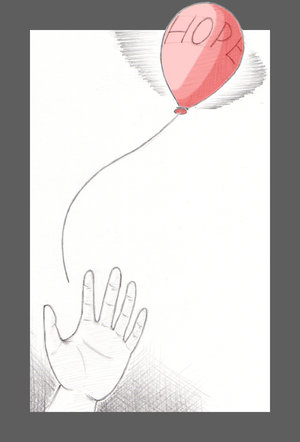Kaung Myat Tun
Out of Class Essay 2
11/19/2012
Brian Curran Lewis
Eglish1B
Hopeless minorities in the past
California has many stories
about its mystery,history and heritage. The beauty, rich in resources,
multiculturalism are bonus reasons to create "the California" and stands
out among other states in the country. The wealthiness in resource
attracts people from nations to small towns and creates a hub of mankind
from over the world. Multiculturalism brings different unique
resources, but as well racial friction and violence. We can look back
some of our history with honor and glory, but some we don't want to hear
again. However,all of those past history and accidents stand important
role to studyour mistakes and to reform the betterland.Many poets and
artists reflect our history of good and bad we did. Though there are
many poems that touch my heart on a certain level, two poems stays in my
mind so strong and give interesting and deep though to me, a brand new
immigrant.
"Yuba City School" by Chitra Banerjee
Divakarunireflects the story of an immigrant mother and son from India
who are dealing with the ridicule and cultural differences faced in
their new second home, United States. And
"Indian Cartography"
by Deborah Miranda tells us about the destruction on native culture and
lives due to the newcomers" domination. Each poet works resemble each
other in the point that they recall and use the history to show their
old days with the nature before the foreigners" interference. However,
two authors highlightthe post-Columbian period in different in terms of
their historical references, but similar understandings,same hopeless
tones and both poets portray their individual perspectives about the
terrible events encountered by minorityin the past.

Both poems tell us to feel the
struggle and hopeless situation of minorities.Mrs. Chitra Banerjee
Divakaruni tells a story of an aging widow move from India to live with
her son and his family in California and they faced racial
discrimination and ridicule.In her poem,
"Yuba City School".
According to the poem, both the mother and son barely speak English and
they had very serious language barrier to communicate with others.I
connect this situation with
"Indian Cartography". Native
Californian father who talks to his child about the despair and
wretchedness his people went through during wartime. "With eyes open,
look down into lands not drawn"(25) from
"Indian Cartography"
touches me the imagery of his hopeless feeling brings the history alive
and the share the pain she experienced. The words "look down" makes me
feel he looked at the land hopelessly. I'm wondering "What if original
Indian Americans speak English well, will the new immigrants, whites
treat them well without wiping out from their own land"? Or at least
will Whites acknowledgeIndians as part of their people without any
bloodshed? It is highly possible that there will be more diplomatic and
peaceful deals among them.

Similar saturation I feel from
Yuba City School is the change in culture and language barrier
causemother and boy to isolate from the society and hopeless
experiences.Different appearance from the rest of the class and unable
to communicate well might drive the boy from being picked, target and
bullied by other students. Author sadly tells us that even the teacher
ignores the boy and let him sit with threatened students.This might be
due to his inability toexpresshis feeling welland the original country
where he came from. Another interesting lines in that poem,
"Invisible hands snatch at his uncut hair/unseen feet trip him from behind"(48)tells
me that the boy feels very small and helpless as well as the hopeless
position. He feels abuse from unknown people around him. I think this is
because of isolation and discrimination made him feel alone and that
lonelinesscreateshopeless condition without help and support in
hiscurrent second country, dreamland. Nearly end of the poem, author
says,
"He bites down on his lip/ to keep in the crying. They are/ waiting for him to open his mouth/ so they can steal his voice."(52)
makes me feel deeper sadness. I sympathize him and can feel exactly
what he felt, as I'm an immigrant minority in the United States, as have
some common experiences throughout my life. I have a very curious
question."If he were a white from the UK or other powerful nations, will
the teacher help him out from the saturation? I would like to say there
is pretty thin chance to get help from that teacher even he were a
white. I have a good reason. I have to bring out that there is more or
less color fever on most people. Although, most teacherscare their
students, but some teachers don't care and it means don't expect to care
whether student is a white, black or yellow. They just don't pay
attention and consider any problem among students is not
theirresponsibility to engage.Author carry on telling about the mother
of that student who has similar situation. She has to see her son's
teacher due to his poor performance in the class, but she doesn'tknow to
defend for her son from being blamed.I hope weall aware the darkness as
the mother tries to climb-out and face the hopeless saturation. She
simply doesn't know how to fight back for her son. For some of us, the
climb-out might take years, perhaps a lifetime. Although it can be
pursuable, it is absolutely not an easy task for her as being hopeless
in that time.
The themes between
"Yuba City School" and "Indian
Cartography" have many similarities on expression, but on the other
hand, there are a few interesting differences.First of all, We all could
agree that the theme for both poems is the mistreatment and abuse and
result turn out in deeply remorseful and hopeless saturation in
minorities; butthe way of presentation is unlike.I would say
"Indian Cartography" is a stronger version of
"Yuba City School" when we compare the hopeless, sadness and discrimination. Although both stories are about the minorities Indians, but
"Yuba City School" poem is the story about the Indian from India, but the
"Indian Cartography" is about the local Indian Americans. Some more, the tone in
"Indian Cartography"
is gloomyway. The poem is about native Indian Americans"painful story
and segregationby whites. Recollecting the peaceful memories of the old
days when the thriving tribes made a harmony with the nature surrounding
them.However
"Yuba City School" is more about prejudicial treatment of different categories of people, but
"Indian Cartography" is about disappearing the en
tire
tribe and culture, massacres, and removal of the Native Indian
Americans from their own land is such a thrilling part to read.Earlypart
of the poem, "Places he was happy,/or where tragedy greeted him" and
"he learned to swim the hard way" makes me feel like the change in their
life was dropped inside the black hole. Loss and despondency is the
point that poet might want readers to feel which has stronger and more
desperate saturation., but in
"Yuba City School","
For him, the words are/muddy red, flying low and heavy,/and always the one he has learned to understand idiot, idiot, idiot" (31)narrates
me even she knows her son is frightened by the dangerous students in
his class, she couldn't help him rather than listen when her son cried
hopelessly to her.
"Yuba City School" tells about the specific minority who didn't speak English well, but
"Indian Cartography" highlights about the colonizing the land and massive killing no matter the ability to communicate with new immigrant whites.
"Yuba City School"highlights me about the difficulties due to changes in culture, but
"Indian Cartography" shows change in culture demolished the entire tribes. In "
Yuba City School" both mother and son loss in hope, but there is still a hope in a distance future when they can speak English well, but in
"Indian Cartography,"there is no hope for local Indians in their foreseeable future during that time.

Chitra Banerjee Divakaruni and Deborah Miranda not only managed to
show the tone and visuals, but also portrayed hopeless feeling, which is
hammered deeply inside us. Somehow different in the background
saturation and condition, but both poets reflect the minorities"
saturation clearly. California is a land mixed harmoniously withWhites
and Blacks;Yellow and Browns and different colored people around the
world. The statehistory is shaped by every color, language and enriched
by every culture.
California has tasted the bitterness of racial
discrimination and segregation, but the history shows us that hatred in
the human heart can recede, and the lines between races and tribe fade
away. What is left, then, is a simple truth: e pluribus unum; in
America, out of many, we are one nation, we are one people."(President
Obama's Speech at the University of Yangon, Myanmar(Burma))This is
not easy to reveal and teach youth about the ugly truth history and
mistakes that they had done. And I'm glad to learn about the history of
the state and I'm honestly proud of being part of this civilized and
open-minded civilization. Yes, in the past many of the minorities faced
ridicule; many of them faced racism; but we have to admit that now there
are lesser accidents than our past. Who dare to deny?This is how
history shaped and mankind improved the land into better place for every
people despite of the color or background.











